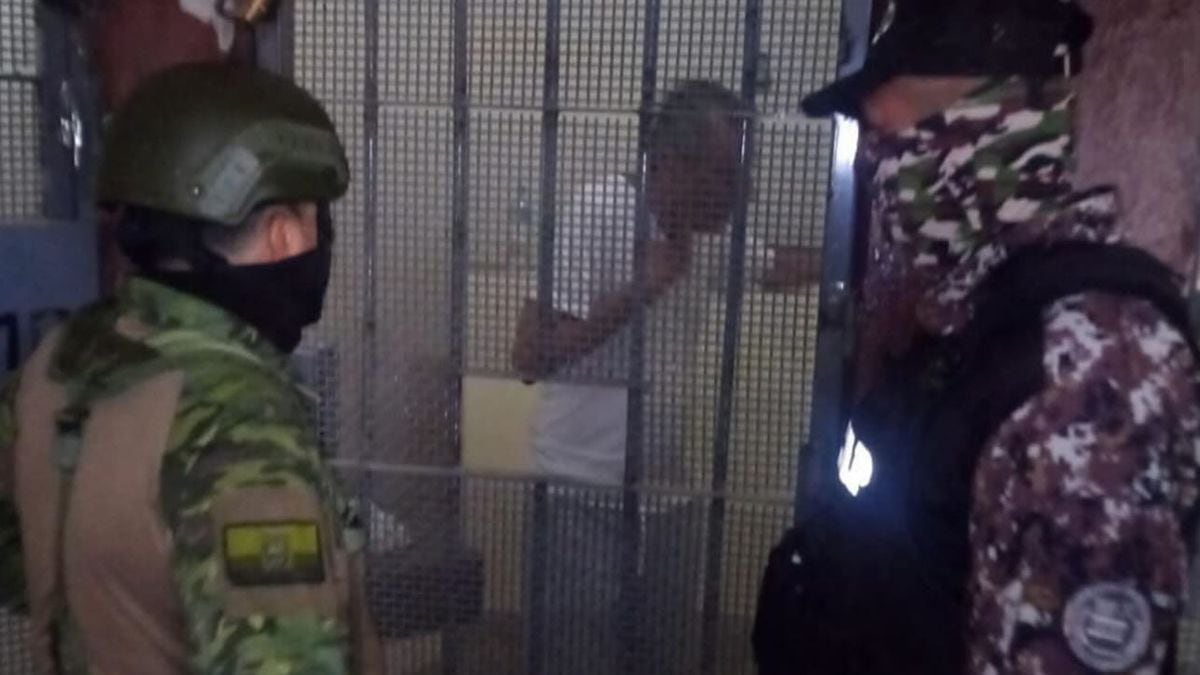Luz del Carmen Hernandez Padaza sets off for Germany in November. She will be gone for eight days, and she believes the journey could change her life. The registered nurse hopes for a future overseas, in distant cities, which the Mexican woman can hardly pronounce: Düsseldorf, Cologne, Berlin. The paper lying on the table in front of her makes the trip possible. "Invitation from the Federal Ministry of Health" is written in Spanish.
Jens Spahn gave her a hand this morning in Mexico City. More than a dozen Mexican nursing experts are sitting on a long table with the German minister. Luz del Carmen Hernandez Padaza wears an elegant black dress, the other professionals, trainers and principals have obviously made chic. It is the German politician who has to prove himself here.
Jens Spahn has traveled to Mexico to fight the German nursing emergency. The speech he gives to the Mexican nursing expert is also a job application speech: the minister is recruiting Mexican specialists. "Germany is the second oldest country in the world after Japan," says Spahn. "We urgently need nurses." That's why he invited 15 Mexican nursing teachers and skilled workers to Germany. It should be a pilot project, the beginning of a new cooperation.
Henry Romero / REUTERS
Jens Spahn with representatives of Mexican training institutions
50,000 to 80,000 foster homes, Spahn predicts, are unoccupied in Germany. Nurses in clinics are missing as well as geriatric nurses in homes. In Germany alone, so much is certain, the demand in the short term can not be covered - even if the Federal Government recruits for professional returns, even if wages are rising and even if apprentices in the future no longer have to pay their own school fees. It will take until the new laws come into effect.
Clinic companies and homecare providers are already looking for new blood even around the world. However, they always come up against limits. The recognition of professional qualifications takes a long time, and smaller clinics or homes are missing anyway the possibilities to recruit personnel abroad. The Federal Government wants to help now. It is a morally sensitive question: Should a country recruit nurses in distant nations? Can an aging nation like Germany specifically look for young immigrants to take care of their elderly?
One should not only, one should, find Spahn. On one condition: If both countries benefit. In any case, the ministry desperately wants to avoid the impression that they are stealing other nations their young generation.
In recent months, for example, the Ministry of Health has systematically identified countries in which the population is relatively young and the surplus of skilled workers is high. In short, countries that can get over it when young people leave. Under this scheme, the Ministry of Health is touring the world. Spahn was recruiting in Kosovo in July, while his state secretary traveled to the Philippines in August. So now Spahn is in Mexico. And it is already clear that for Spahn it is not the last mission abroad.
In Mexico, the demand for skilled workers is increasing
"I'm happy about every specialist," says the Minister of Health. He hopes that from Kosovo there will be around 1,000 immigrants per year, he hopes that "a few hundred nurses" could come from Mexico once again. The number of 15 Mexican nursing instructors, who are due to come to Germany for their eight-day seminar trip to Germany in November, seems comparatively straightforward. Spahn sees them as "multipliers": If they return to their homeland Mexico, they could tell of their experiences in Germany. In addition, clinics and homes will be supported in the recruitment of nurses in the future - through a reliable certification of visa brokers and the faster recognition of professional qualifications. In future, a new umbrella organization will be responsible for more effective recruitment.
more on the subject
However, recruitment in Mexico is politically sensitive. Although the country is young, the average age is 29.2 years. But Mexico is also aging, and suffering such as diabetes is on the increase. And so in Mexico, too, the demand for skilled workers is increasing. "We lack staff," says the head of a non-governmental Mexican health foundation in conversation with Spahn.
It was only in the spring that the OECD issued a sobering verdict to Mexico: Health care was below average in international comparison because of the lack of public investment. The number of hospital beds is very low, in the country lack of doctors and nurses. According to statistics from the World Health Organization (WHO), Mexico has 2.9 nurses per 1000 inhabitants. In Germany, it is 12.9 percent.
Even if it sounds like a paradox, cooperation with Germany could help Mexico in the long run. Nursing school leaders report that they can not fill many care places because there are not enough clinics where students can complete their practical training. An exchange with Germany creates relief there.
Luz del Carmen Hernandez Padaza also reports that there are "a lot of caretakers" in her graduating class who are now moving to other countries. She can imagine staying in Germany for longer. Maybe forever. Her family, she says, is quite open. "Even my parents want to visit me in Berlin."



/cloudfront-eu-central-1.images.arcpublishing.com/prisa/P4H4KHB2DZAUFKDGYVH7ODLTBM.jpg)





/cloudfront-eu-central-1.images.arcpublishing.com/prisa/Z6YMDVPE2NHHTGDHDZ4XH5MOFM.jpg)